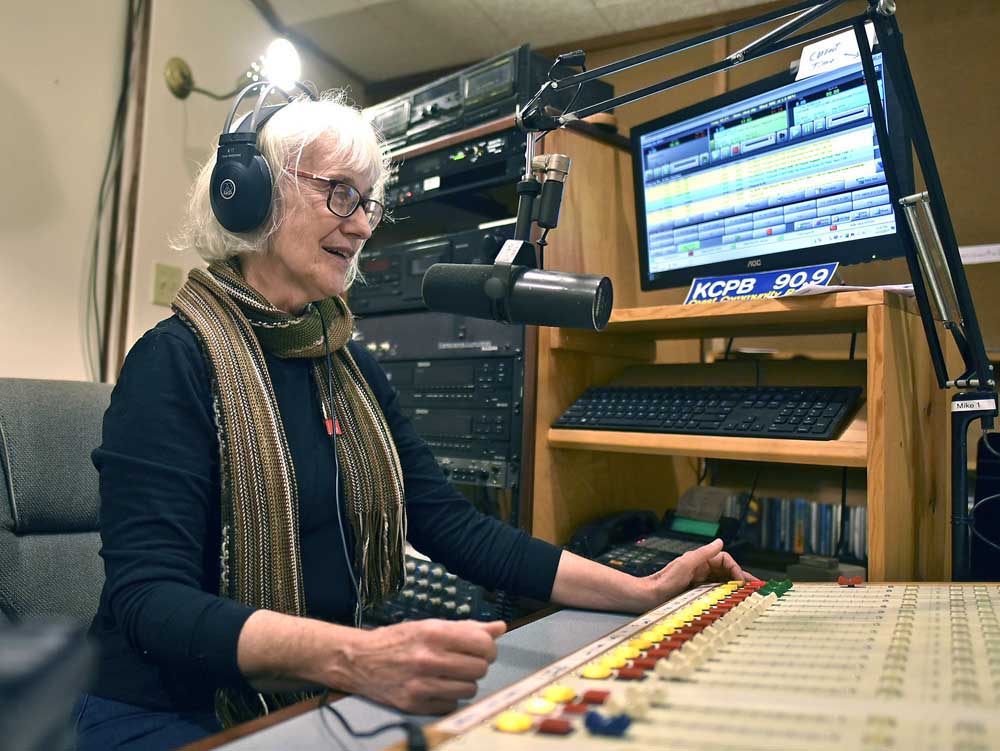Guest Column: Where Kristof voted shouldn’t matter
Published 12:30 am Saturday, January 8, 2022

- Jim Redden
I am surprised that state election officials rejected former New York Times columnist Nicholas Kristof’s candidacy for Oregon governor largely because he registered to vote in the state where that newspaper is published.
Trending
I personally know that an Oregon court already has ruled that where a candidate votes does not determine what they consider home. I don’t know that because I covered some trial as a reporter. I know it because I testified as a witness in support of the winning candidate, my friend and University of Oregon classmate Bill Wyatt, 47 years ago.
Kristof was raised in Yamhill and owns his family’s farm there. He filed for the 2022 governor’s race as a Democrat in December. The Oregon Constitution requires that candidates for governor be a resident of the state for three years before the election. Kristof maintains that he has always considered Oregon his home, even though he moved out of the state for college and employment, and registered to vote in New York while working there. Kristof said that he has repeatedly returned to the farm over the years and invested in it.
Kristof voted in New York during the 2020 election.
Trending
The Oregon Elections Division and Secretary of State Shemia Fagan ruled against Kristof’s candidacy on Thursday.
“The rules are the rules and they apply equally to all candidates for office in Oregon. I stand by the determination of the experts in the Oregon Elections Division that Mr. Kristof does not currently meet the constitutional requirements to run or serve as Oregon governor,” Fagan said in a news release. “As Oregon’s chief elections official, it is my responsibility to make sure all candidates on the statewide ballot are qualified to serve if elected.”
During the follow-up press conference, Fagan repeatedly stressed the importance of Kristof registering and voting in New York. Kristof intends to appeal.
But the question about voting and residency was resolved a different way in 1974 during a trial in the Marion County Circuit Court.
Wyatt is best known as the former director of the Port of Portland. But at that time, he was an Oregon state representative from House District 2 on the North Coast. He had won the Democrat primary nomination in the May primary election and had been appointed to fill the vacancy created when the incumbent retired before the general election.
I have not yet tracked down the court records and they may no longer exist. But the case was documented at the time in a series of articles in The Oregonian that I have obtained. They started on Oct. 2 of that year with a report that then-Attorney General Lee Johnson had asked Wyatt to verify his residency in the district. The request was made after a resident filed a complaint that said Wyatt had not lived in the district for the year required of legislative candidates because he has moved to Eugene to attend the U of O in 1971. The article said Johnson’s office had determined Wyatt registered to vote in Lane County that year, had voted in Eugene in 1972, and had not reregistered to vote in the district until April 1973.
Wyatt did not dispute that he had registered to vote in Lane County, but said he always considered his home to be in the district. His family had maintained a residence there while he was at college. Johnson advised then-Secretary of State Clay Myers to remove his name from the ballot anyway. Wyatt quickly filed suit in Marion County Circuit Court to restore his name to the ballot.
At the time, I was working for the state Senate Democrat Majority Office at the Oregon Legislature. Because Wyatt and I had been at the U of O at the same time, someone asked me whether I’d voted in Lane County and if I considered Eugene my home then. I said that, although I voted in Eugene, I considered Medford my home, because that’s where I was raised, where my family lived and where I returned during school breaks. So since Wyatt and I agreed, I volunteered to testify in his support during his trial.
I had no problem testifying that I considered Medford my home, even though I voted in Eugene. The deputy Oregon attorney general representing the state asked if I didn’t understand that, by signing the voter registration card, I had sworn an oath that I lived in Eugene. I think I replied that I hadn’t read it, which prompted laughter in the courtroom, much to my chagrin.
Despite my ignorance of the alleged seriousness of voter registration cards, Marion County Circuit Judge Jena Schlegel ruled in Wyatt’s favor and ordered his name restored to the ballot. She determined the question of domicile is largely one of intent, according to an Oct. 26, 1974, Oregonian story on the ruling.
“Continuous physical presence (within the district) is not required, she said. If it were, no one elected to Congress could meet residency requirements for the office,” the article reads.
Wyatt won the general election on Nov. 5, 1974, and Johnson advised Myers not to appeal the court ruling. According to a Nov. 14 Oregonian article, Johnson said the case was moot because Wyatt had won the election. But the bottom line is: The state chose not to appeal the decision.
Wyatt went on to become Gov. John Kitzhaber’s chief of staff, the director of the Port of Portland, and, now, the director of the Salt Lake City International Airport, overseeing its multibillion-dollar renovation.
There are undoubtedly differences between legal requirements for the two offices — governor vs. state representative — and lawyers can be paid good money to quibble over them. History likely will repeat itself and the question of Kristof’s eligibility will be decided in court. But everyone should know that a similar case already was decided in the candidate’s favor.









